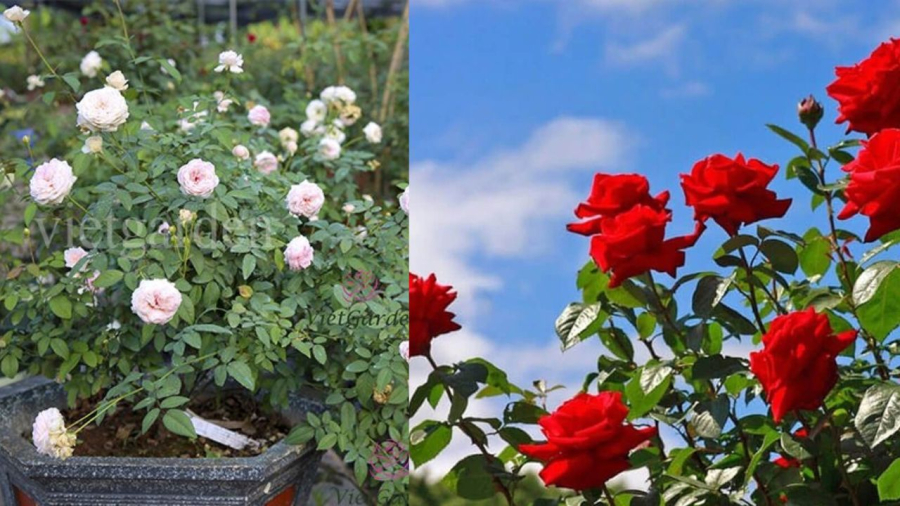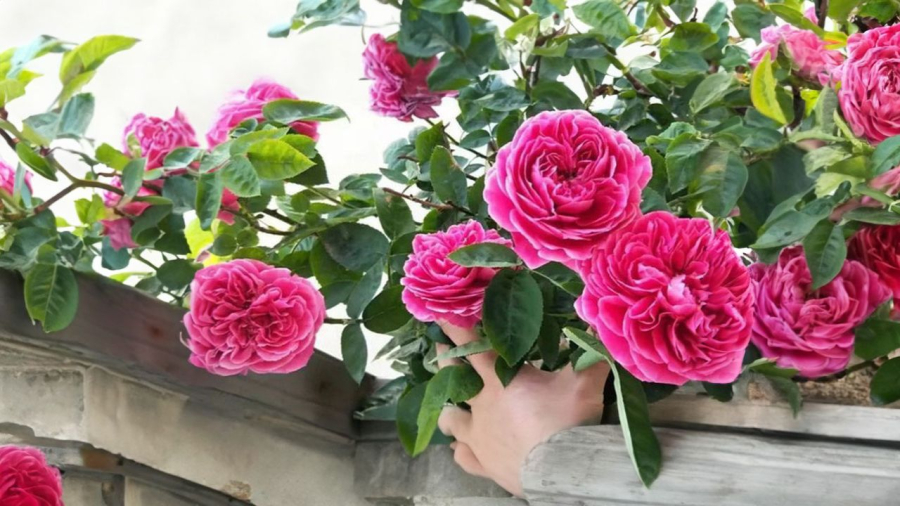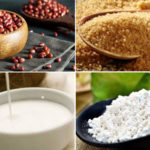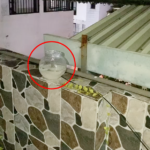Roses are a popular type of flower that is commonly grown. They are beautiful and can be grown easily. However, not all rose plants produce many flowers. Besides pruning and caring for them, watering is also crucial for roses to bloom abundantly. Specifically, you can use two sweet seasonings occasionally to nourish your roses:

Roses are a popular type of flower that many people grow for decoration
Roses love monosodium glutamate water
Monosodium glutamate is a seasoning that many families use to add sweetness to their dishes. However, few people know that roses also love this seasoning. In fact, monosodium glutamate is a high-protein ingredient that helps roses grow and develop.
You can use diluted monosodium glutamate as watering for your rose plant. Monosodium glutamate stimulates the growth and development of the plant’s roots. With strong roots, rose plants can withstand different weather conditions and produce thick and healthy flowers. It is worth mentioning that roses often die due to root damage, so proper application of monosodium glutamate can make your rose plants more durable and beautiful. After each pruning session, you can water the plant with diluted monosodium glutamate around the base to encourage new shoots to grow. The more new shoots the rose plant has, the more flowers it will produce.
If you want your plant to quickly grow new shoots after pruning, remember to give it some monosodium glutamate to “eat”.

Monosodium glutamate and sugar are two seasonings that people think are only for humans, but roses also love them
Watering with sugar for rose plants
Sugar is a “quick energy boost” for humans. Surprisingly, many people also water their plants with sugar water or sweetened water.
Sugar water is also a favorite “drink” of roses, especially when you want to propagate new rose cuttings. Dip the cut end of the stem into sugar water before planting it. The sugar water helps stimulate the development of roots.
Sugar, which is made from sugarcane, is a nutrient that enhances the metabolic processes in plants and helps them accumulate nutrition. When you first plant a young rose plant, sugar water helps it develop strong roots, resulting in a sturdy stem and healthy leaves.
Sugar water also improves the photosynthesis process of rose leaves, preventing them from turning yellow and giving the plant more strength. When planting roses, you can water them with sugar water during the budding stage to promote healthy flower buds and larger, fuller blooms.
Notes when watering roses with sugar water and monosodium glutamate water
Although sugar water and monosodium glutamate water are beneficial for plants, you should dilute them at a ratio of 1:500 to avoid leaf curling and root rot.
When watering with sugar water or monosodium glutamate water, focus on the base of the plant and avoid wetting the leaves. Additionally, avoid watering in the late evening, as it can encourage pest infestations on your rose plants. Roses are susceptible to pests and diseases, especially when watered late in the evening.
Only water with sugar water or monosodium glutamate water 1-2 times per month. Overwatering may lead to leaf rot or incomplete nutrient absorption, causing the soil to ferment and attract pests.
Aside from sugar water and monosodium glutamate water, you can also care for your rose plants using readily available water sources at home to minimize the need for chemical fertilizers:
Water from rinsing rice: Roses love rice water, so if you have leftover rice water, use it to water your roses the next day. Rice water provides slow-release nutrition, which benefits the plants’ overall health. Don’t waste the rice water; recycle it for your roses.
Boiled egg water and eggshells: The water used to boil eggs and eggshells are rich in calcium, which is good for rose plants. Calcium helps them grow healthier with more abundant and long-lasting blooms.
Aquarium water: If you have a fish tank at home, instead of using tap water, use the water from the fish tank to water your plants. The water from the aquarium contains a high concentration of nutrients from the fish waste.
While pruning and care are essential, proper watering is crucial to abundant blooming. In addition to regular water, you can occasionally use two unexpected seasonings to nourish your roses: monosodium glutamate and sugar.
Monosodium glutamate (MSG) is a high-protein seasoning that can stimulate the growth and development of rose roots. Dilute MSG and use it to water your rose plants, focusing on the base. This will help strengthen the roots, making the plant more durable and able to withstand various weather conditions. Apply diluted MSG after pruning to encourage new shoots, and remember to do so sparingly, about once or twice a month.
Sugar provides a quick energy boost for roses and enhances their metabolic processes. When planting new cuttings or young rose plants, dip the cut end of the stem into sugar water to stimulate root development. You can also water your roses with sugar water during the budding stage to promote healthy flower buds and larger blooms. As with MSG, use sugar sparingly and avoid wetting the leaves.
Always dilute MSG and sugar at a ratio of 1:500 to avoid leaf curling and root rot. Do not water your roses with these solutions in the late evening, as it can attract pests. Overwatering with sugar or MSG solutions may lead to leaf rot and incomplete nutrient absorption, so stick to once or twice a month.
Yes, you can use water from rinsing rice, boiled egg water (including eggshells), and even aquarium water. These alternatives provide slow-release nutrition and essential minerals like calcium, contributing to the overall health and longevity of your rose plants.






































